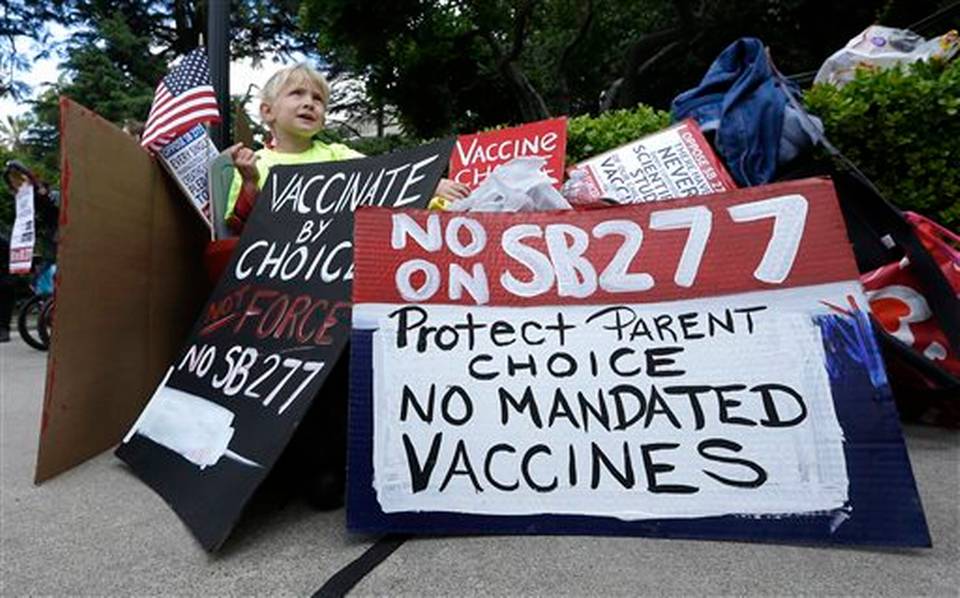Does vaccination cause autism? Of course not. The 1998 paper by Wakefield, et al that originally claimed a link between autism and vaccination was partially retracted in 2004 and fully retracted in 2010, after proofs of falsified data (see theBMJ). Several papers have already been published reinforcing the fact that vaccines do not cause autism. Yet, some politicians still declared in front of million that this vaccination-autism myth is true. In the Youtube video below, the vaccination debate and the various candidate’s opinions are broadcasted.

Reactions from practicing doctors, reported by NYTimes, show dismay at politicians’ views hindering their efforts to promote safe vaccinations. There is a reason for the strict vaccination schedule and it is the best preventative method for children who are most vulnerable to chronic diseases such as rubella, measles and hepatitis B.

“When a critical portion of a community is immunized against a contagious disease, most members of the community are protected against that disease.” by NIAID
As budding scientists, one of the key instructions embedded in our every lab and every class is fact-checking. We are one of the select communities to be at the top of the information chain. It is, therefore, our main responsibilities to put out accurate results to the masses. Hence, the scientific process requires repeated experimentation and peer review to ensure proper results. Else, we risk misleading the public into unwise decisions. A primary example would be parents rejecting the mandatory children’s vaccinations.

Citizens rally in Sacramento against SB-277, a bill mandating children to be vaccinated before they are allowed to attend school. (photo taken by Jeffrey Jaxen)
The measles outbreak in California evidently shows the tragic consequences of false yet widespread information. It also reinforces our need to analyze and filter the information we receive everyday, may it be from the media, public figures, or even professors at school. Critical thinking and fact-checking, two of the most important skills we have acquired from scientific research, are not limited to the inside of laboratories. To maximize our experiences, we must apply these implicit skills taught in university to our daily life. It is our duty to the public, as future scientists and primary informants of the world.
